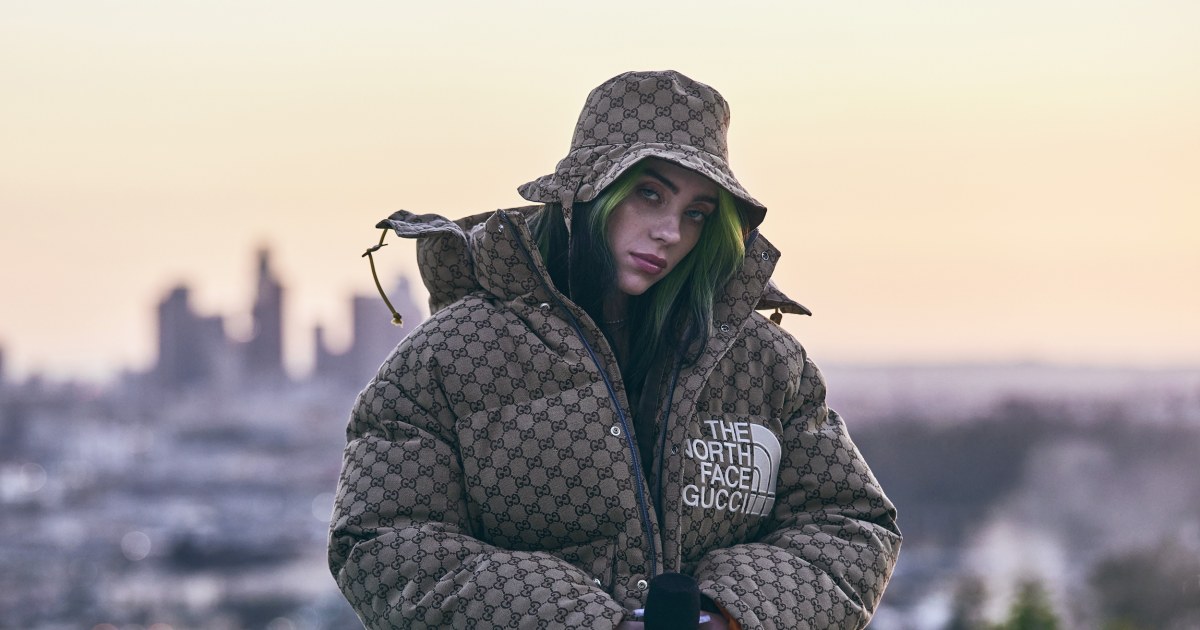
Billie Eilish’s highly anticipated sophomore album, “Happier Than Ever,” is poised to further cement her place in pop stardom even as it explores the effects said stardom has had on her.
After putting out her first viral single in 2015, Eilish transformed pop music with her 2019 debut album, “When We All Fall Asleep, Where Do We Go?,” which she made at home with her brother. Critics lauded the emotional transparency and the unsettling, haunting tone amid the more sugary and sweet albums that typically dominate the pop scene. She went on to shatter several records, including becoming, at 18, the youngest artist ever to win a Grammy in the top four categories. But since then, she also became one of the youngest artists to reckon with the intense scrutiny that kind of attention brings.
On “Getting Older,” the opening track of “Happier Than Ever,” which came out Friday, 19-year-old Eilish sings: “Things I once enjoyed/ Just keep me employed now.” Getting older generally isn’t easy for anyone, but throw in Eilish’s life as one of the world’s biggest pop stars and the words take on larger significance.
Indeed, throughout “Happier Than Ever,” thoughts on the isolation and stress of fame appear. “Getting Older” also mentions the “deranged” strangers who appear at her door. “NDA” tackles the cost of security and the emotional toll of being a famous teen. In the track, she even sings of a secret house she bought at 17, then dejectedly explains she’s never been able to throw a party in it. However, the most jarring ruminations on fame’s restrictions come on the track “Not My Responsibility,” a monologue taking on the constant criticism around her body and sexuality. One line in the track asks: “The body I was born with/ Is it not what you wanted?”
Since bursting on the scene as an electro-pop sensation at 13 with her song “Ocean Eyes,” Eilish has been known for being vocal around body positivity. Her choices to wear baggy clothes to reduce focus on her body have drawn both praise and criticism. Her dyed green-and-black hair has evoked similar responses. Eilish, in turn, has said being in the spotlight is a no-win situation and that women should just be themselves.
In her recent British Vogue cover story — which dominated the Twittersphere for days after its release — she decided to exchange her hair colors for blonde and her loose clothing for a corset. She explained in the story that she knew this would draw criticism, (as it did; she was quickly accused of “selling out”) but that she did it anyway because women shouldn’t be chained to any style of dress.
In her new album, the singer makes something meaningful out of her struggles with fame, judgement and criticism. Eilish paints a picture of the freedom that comes from just saying screw it, a sentiment she expresses more colorfully by ending the title track “Happier Than Ever” with “Just f—ing leave me alone.”
Maybe part of that happiness is her disproving the “whisper singer” criticism she’s faced, claiming her soft singing on her albums is evidence that she lacks vocal talent. In the banging, clanging “Happier Than Ever,” the singer showcases her voice and challenges these claims.
On Instagram, Eilish explained that this album “means the world” to her and asked her fans to “please take care of this project.” But the album seems to be a promise she’s made to take care of herself.
Source: | This article originally belongs to Nbcnews.com










